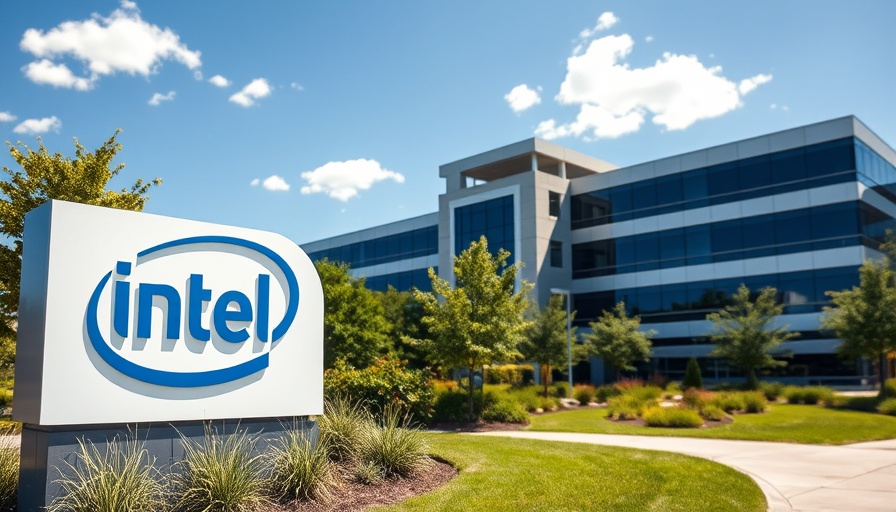
AI Disruption at Intel: A Wake-Up Call for Job Seekers
The recent announcement regarding 25,000 job cuts at Intel has sent shockwaves through the US tech industry, leaving many tech graduates to contemplate their futures. As automation increasingly permeates workplaces, especially in tech companies like Intel, Microsoft, and Meta, traditional roles are being phased out. This transformation is attributed largely to the rapid rise of artificial intelligence (AI) technologies which are swiftly reshaping the job landscape.
Understanding AI Job Cuts and Their Impact
The implications of AI-induced job losses extend beyond just numbers. An estimated 25,000 positions are at risk due to a shift towards AI-native teams where roles traditionally filled by human workers are now being automated. This push towards efficiency often compromises not just jobs but the livelihood and technological literacy of workers who may lack the skills to adapt to these changes.
Intel's dramatic layoffs highlight a larger trend across the industry that shouldn't be overlooked. According to employment experts, workers with skill sets in machine learning, data science, and cloud architecture are becoming increasingly valuable. Knowledge in these areas not only safeguards against job losses but also enhances employability in a rapidly evolving tech landscape.
What Skills Will Keep You Employable?
As tech graduates stand at a crossroad, it’s essential to equip themselves with the right skills that are in demand today. Here are three critical areas to focus on:
- Machine Learning: Understanding algorithms and data patterns will help tech graduates develop AI applications and tools vital for modern companies.
- Data Science: Analyzing data to inform decisions is crucial for any tech organization. Graduates should consider further education in statistics and software tools.
- Cloud Architecture: With businesses migrating to cloud services, expertise in this area will be indispensable for managing data and systems.
The Human Element: Emotional and Social Connection
The impact of job cuts goes beyond statistics and entering new domains; it reverberates through families and communities. Many tech graduates not only face the daunting possibility of unemployment, but they also feel the emotional strain that comes from the unpredictability of their careers. Community support becomes paramount, forging connections and providing avenues for learning new skills.
Grassroots initiatives are emerging where local entrepreneurs and tech enthusiasts are banding together to offer workshops and peer support systems. These initiatives celebrate the unique character of local life and provide critical opportunities for collaboration and growth.
Counterarguments: Should We Embrace AI?
Some critics argue that while AI disrupts many traditional jobs, it simultaneously creates new ones that previously didn't exist. Though this perspective may bring some optimism, the key to thriving in the AI era lies in striking a balance between embracing innovation and preparing for its aftereffects.
Employers and educational institutions must also play a role in addressing these challenges. Establishing partnerships that focus on curriculum development, mentorship programs, and training can better prepare the future workforce, ensuring that students aren’t left behind in this transitional period.
Conclusion: Embracing Change and Building Community
As we navigate this new reality shaped by AI technology, it becomes imperative for tech graduates to adapt creatively and proactively. Networking with local tech communities, enhancing their skillsets, and remaining resilient can help mitigate the impact of layoffs and job losses.
To those recent graduates and entry-level tech workers: assess your skills today, reach out to your community, and embark on lifelong learning. The tools to combat job cuts are within your grasp, but it will require a collective effort, a willingness to adapt, and the spirit of togetherness that defines your communities.
 Add Row
Add Row  Add
Add 




Write A Comment